Everest Base Camp Trek is a wonderful Himalayan adventure that requires rigorous training. The incredible trekking journey will provide you with the best adrenaline pumping experience. However, you must train rigorously for the successful completion of the trek.
The training routine should include physical and mental exercises. You will pass through the rugged terrains of the region, which will test you immensely. Hence, a good training regime at least 3-5 weeks before the start of the Everest Base Camp trek is a must.
The best way to train for the Everest Base Camp Trek is to start by incorporating various exercises in your routine. This includes strength and endurance, cardiovascular, climbing, mental, and general conditioning training exercises. You should focus on building strength in your core muscles by doing lunges, squats, planks, etc.
Additionally, you can prepare by hiking or walking on uphill terrain with a backpack to simulate the conditions of the trek. It’s also important to gradually increase the intensity and duration of your workouts as you get closer to the trek. This will ensure that your body is adequately prepared.
Want to know more about the Everest Base Camp trek training regime? You have arrived at the right place. Read on to learn about how to train for Everest Base Camp trek in detail in this article below. You will also get additional tips regarding the training routine that you must undertake before your trekking journey.
How to Train for Everest Base Camp Trek?
Assess your fitness level
There are several ways to assess your fitness level. One way is to consult your doctor or a physical trainer, who can perform a physical examination and guide you on your fitness level. Another way is to use a fitness test which involves running a set distance or performing a set of activities in a set time.
Additionally, you can track your workouts and monitor your progress over time to see how your fitness level is improving. You can also join a group fitness activity to get an idea of your fitness level. You must know your current fitness level if you’re trekking the EBC trek. You can set up your training correctly and accurately for better results.
Physical Strength and Endurance Conditioning
The Everest Base Camp trek involves several hours of hardcore high-altitude hiking. This can be physically demanding, especially for amateur trekkers. Physical strength and endurance conditioning are essential as it builds strong leg, hip, and core muscles. Trekkers will maintain good posture and balance, and it can also help prevent injury.
You will be walking with a heavy backpack on your back. Hence every part of your body needs to be vital to tackle this condition. Finally, strong muscles can help you feel more confident and capable during the trek, improving your overall experience. Some of the strength-building exercises recommended are as follows:
- Squats
- Step-ups
- Pull-ups
- Push-ups
- Bench presses
- Lunges
- Leg curls
- Deadlifts etc
However, you must ensure that the exercises are correct and not harming your body. You can take the help of a gym trainer if necessary. It would be best if you rested between sets so as not to get fatigued along the trail.
Cardiovascular Conditioning
Cardiovascular conditioning is also quite crucial for the Everest Base Camp Trek. Having a strong cardiovascular system can help you maintain a steady pace and can also help you recover more quickly when you take breaks.
Additionally, having a strong cardiovascular system can help you maintain good breathing technique, which is essential for trekking at high altitudes where the air is thin. Finally, having a strong cardiovascular system can help reduce your risk of altitude sickness, which can be a serious concern on the trek.
Some of the major cardiovascular conditioning exercises are as follows:
- Running, jogging, hiking
- Stair stepping
- Walking on a tilted treadmill
- Aerobic classes
- Cycling, biking, swimming, etc.
Mental Conditioning
High-altitude treks can be physically and mentally demanding, and being in good mental shape can help you stay focused and motivated. It can also help you cope with any challenges during the journey.
Mental conditioning can include:
- Practicing mindfulness and relaxation techniques.
- Visualization techniques.
- Setting realistic goals and expectations.
Moreover, yoga has also been proven to be beneficial for improving trekkers’ mental conditioning. Learning about the potential challenges of high-altitude trekking, such as altitude sickness, and how to prepare for and respond to them can also help you mentally prepare for the trek. Hence, a positive attitude and deterministic mindset are a must for the EBC trek.
Go on Practice Hikes
Trekkers aspiring to trek the Everest Base Camp should take practice hikes in the nearby hills. This will allow you to prepare for the trek in the high-altitude region. It helps you prepare your body for the physical demands of the Everest Base Camp Trek.
The trek involves hiking for several hours daily on uneven and often steep high-altitude terrain, which can be physically strenuous. By going on practice hikes, you can build up your endurance, strength, and stamina and get a better sense of what to expect during the trek.
This will keep you more confident and prepared and reduce your risk of injury. Additionally, practicing with a backpack can help you get used to the trek. You will also get used to long distances and break in your trekking shoes. Hence, trekkers must take a minimum of 3-4 hikes in the nearby hills before the Everest Base Camp trek.
Carry Adequate Trekking Gear
A successful trekking journey to Everest Base Camp must include proper and adequate gear. They reduce the difficulty along the trail and keep you safe and comfortable. You should consider carrying several trekking gear for the Everest Base Camp Trek. Some essential items include:
- Comfortable and durable hiking boots or shoes
- Warm and waterproof clothing, including a jacket, pants, gloves, and a hat
- Sun protection, including sunscreen, sunglasses, and a hat
- A good quality backpack to carry all your gear and supplies
- Water bottles and a water purification system
- First aid kit, including bandages, painkillers, and any necessary medications
- Toiletries and personal hygiene items
- A flashlight or headlamp and extra batteries
- Maps and a compass
- A trekking pole or two to help with balance and support on the trail.
- High-energy snacks, such as energy bars, nuts, and dried fruit
- A portable charger for your electronic devices
You should also consider carrying additional items depending on the time of year.
Essential Tips for the Everest Base Camp Training
Here is some general conditioning that will help you to complete the Everest Base Camp trek successfully:
- Train with weight on your backpack
- Gain at least 1,000m in elevation with 12 to 18 kg of backpack
- Increase the backpack’s weight gradually
- If available, use a step-mill machine to train.
- Maintain at least one recovery day per week.
- Train with heavy boots or hiking shoes.
- Reduce the intensity on the final week before the trek
- Listen to your body and do not push yourself too hard
- Practice mindfulness and mental stimulation activities
- Prepare an acclimatization schedule for the trek
- Have a healthy, nutritious diet during training

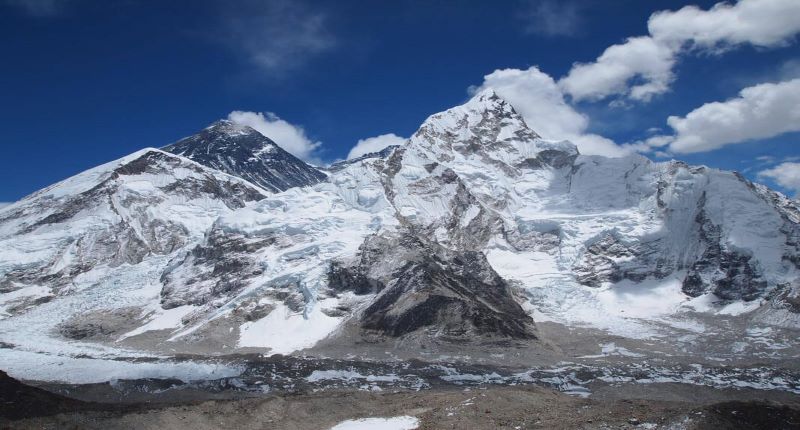
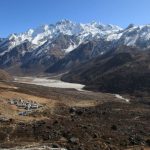 Tuesday, January 27th, 2026
Tuesday, January 27th, 2026
 Tuesday, January 20th, 2026
Tuesday, January 20th, 2026
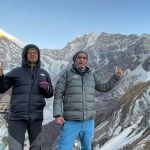 Sunday, January 18th, 2026
Sunday, January 18th, 2026
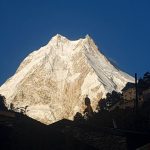 Wednesday, December 31st, 2025
Wednesday, December 31st, 2025
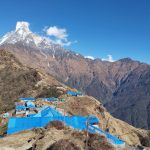 Thursday, November 27th, 2025
Thursday, November 27th, 2025
 Wednesday, November 26th, 2025
Wednesday, November 26th, 2025
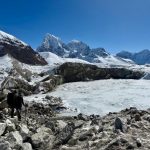 Friday, November 21st, 2025
Friday, November 21st, 2025
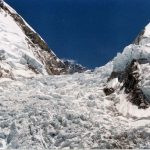 Wednesday, August 27th, 2025
Wednesday, August 27th, 2025
 Saturday, August 30th, 2025
Saturday, August 30th, 2025
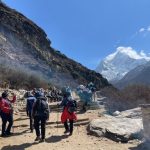 Tuesday, September 2nd, 2025
Tuesday, September 2nd, 2025
